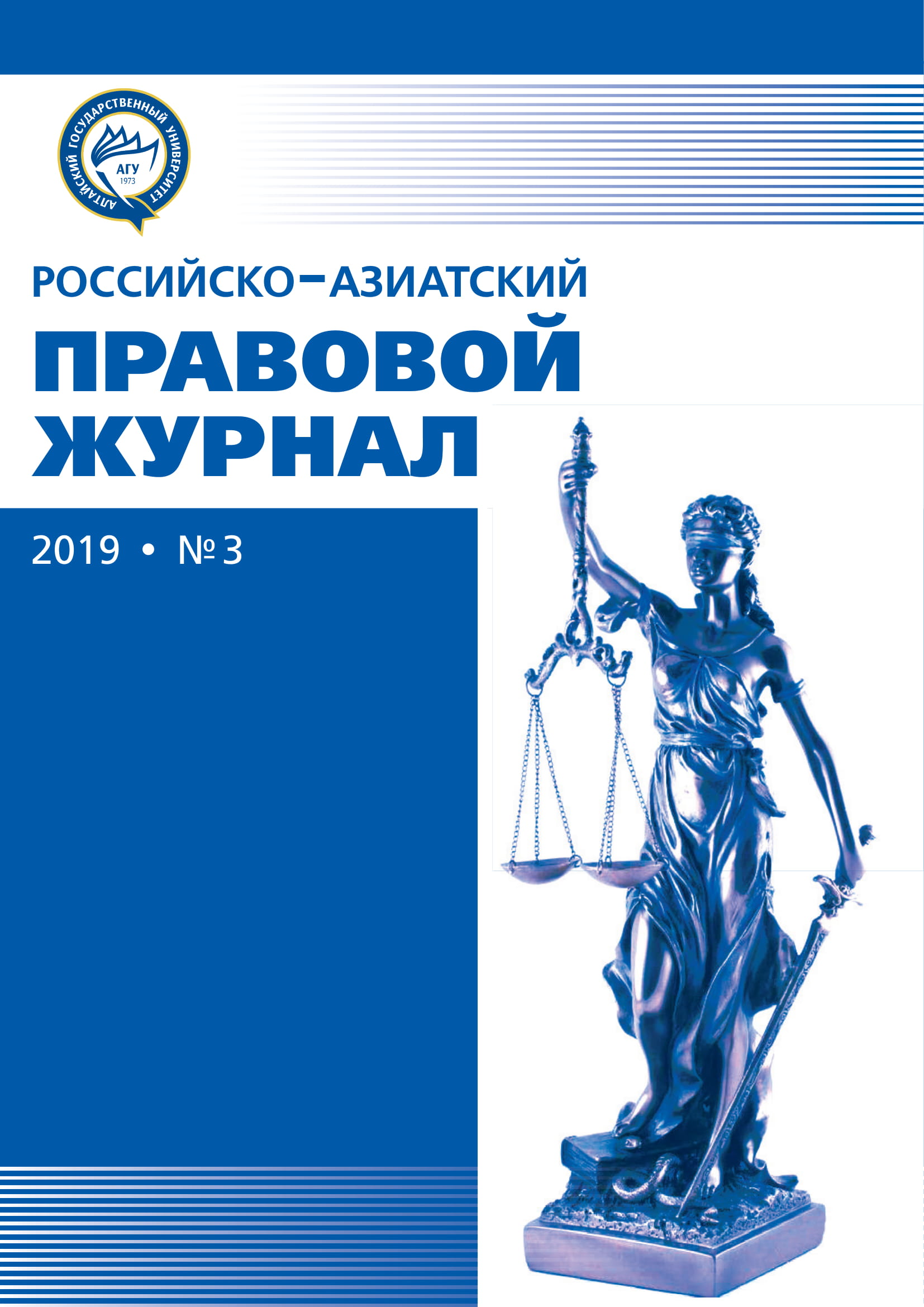PERSONALITY IN MODERN RUSSIAN CONSTITUTIONAL LEGAL CONDITIONS
УДК 342
Abstract
The article analyzes the state-legal conditions that have a determining effect on the domestic legalculture of society and the mentality, identifies the causes and conditions that contribute to the variability ofRussian legal consciousness. The conclusion is made about the need to form constitutional psychology asa complex branch of knowledge and its importance in modern society, which is based on the constitutionalthinking of citizens.
Downloads
References
2. Сорокин В.В. Юридическая глобалистика : курс лекций. Барнаул, 2014. 157 с.
3. Аничкин Е.С., Каширский Д.В. Конституционная психология как отрасль научного знания
и феномен культуры // Психология и право. 2019. Т. 9. №2. doi:10.17759/psylaw.2019090209.
4. Науменко Е.А. Юридическая психология : уч. пособие. Тюмень, 2003. 140 с.
5. Авдеев Д.А. Конституционализация юридического мышления граждан как условие обеспечения прав человека // Конституционное и муниципальное право. 2017. №3.
Russian-Asian Law Journal is a golden publisher, as we allow self-archiving, but most importantly we are fully transparent about your rights.
Authors may present and discuss their findings ahead of publication: at scientific conferences, on preprint servers, in public databases, and in blogs, wikis, tweets, and other informal communication channels.
Russian-Asian Law Journal allows authors to deposit manuscripts (currently under review or those for intended submission) in non-commercial, pre-print servers such as ArXiv.
Authors who publish with this journal agree to the following terms:
- Authors retain copyright and grant the journal right of first publication with the work simultaneously licensed under a Creative Commons Attribution License that allows others to share the work with an acknowledgement of the work's authorship and initial publication in this journal.
- Authors are able to enter into separate, additional contractual arrangements for the non-exclusive distribution of the journal's published version of the work (e.g., post it to an institutional repository or publish it in a book), with an acknowledgement of its initial publication in this journal.
- Authors are permitted and encouraged to post their work online (e.g., in institutional repositories or on their website) prior to and during the submission process, as it can lead to productive exchanges, as well as earlier and greater citation of published work (See The Effect of Open Access).








